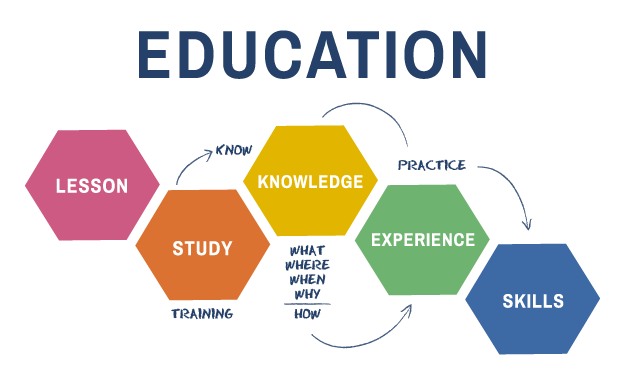HYPE's Mission, Vision, Principles and Values
 The Set of Directions
The Set of Directions
 Career-oriented Services:
Career-oriented Services:
HYPE services assist young adults to explore, pursue, and achieve education and employment goals that will lead to a desired careers and financial self-sufficiency. HYPE services emphasize education goals that further career development.- Cultivation of Identity of Worker & Student:
HYPE services develop resiliency and skills of young adults to create and reinforce the identity and role of worker and student. HYPE works with family members and mental health providers to ensure consistent messages and supports are provided in order to prevent the creation of “disability identity.” - Informed Decision Making:
HYPE services assist young adults in selecting and pursuing vocational goals that are consistent with their personal preferences, values, and interests by providing factual information and detailed alternatives to allow them to weigh the long- and short-term costs, risks, and benefits of potential career pathways. - Service Eligibility Based on Choice:
HYPE services accepts all young adults who express any level of interest in exploring or pursuing education and/or employment. Young people are not excluded on the basis of diagnoses, symptoms, substance use history, psychiatric hospitalizations, homelessness, level of disability, or legal system involvement. - Purposeful Service Coordination:
HYPE practitioners work closely with services and supports utilized by the young adult. Given the various services young adults may be involved with (both within and outside of community mental health) concerted effort is dedicated to coordinate services. - Attention to Preferences:
HYPE services are based on the young adult’s values and choices and assist in continuous exploration of additional preferences and interests. - Personalized Financial Planning:
HYPE services assist young adults in understanding the impact of financial decisions on long-term self-sufficiency. HYPE services see application to SSA as a last resort and helps the young person to access other types of financial support. HYPE helps young adults develop an “exit plan” if receiving government benefits. - Rapid Goal Pursuit:
HYPE services work quickly to help the young adults enter into their desired setting. Practitioners do not delay pursuit or entrance into either employment or education, but works intentionally to overcome barriers to entrance as well as develop skills and resources while concurrently pursuing a young adult’s goal. - Systematic Resource Development:
HYPE services identify and link young people to naturally occurring supports and services within their communities to support the entrance into and maintenance of employment and education. - Systematic Job Development:
HYPE practitioners systematically visit employers, who are selected based on the young adult’s preferences, to learn about their business needs and hiring preferences. The long- and short-term costs, risks, and benefits of disclosure are discussed prior to job development. HYPE does not disclose the mental health condition unless it is preferred by the young adult. - Time-Unlimited and Individualized Support:
HYPE supports are individualized and continue for as long as the young adult wants and needs the support. - Community Integration:
HYPE services connect young people to existing community supports to meet their educational and employment needs to enhance community integration. HYPE services do not duplicate existing supports on campus or in the young adults’ communities. HYPE provides additional supports in order for a young adult to access and/or benefit from the community service/support.
HYPE's Values
The Behavioral Compass 

- Flexible: practitioner’s support is adapted and provided in ways that meet the unique needs of each young adult in services.
- Helpful: practitioners anticipate common barriers that disrupt educational and employment success and work with the young adult proactively to develop skills and resources in order to prevent disruption.
- Solution-focused: practitioners work to creatively resolve practical, every-day issues in order to maintain positive movement toward the young person’s goal.
- Partnering: practitioners collaborate with each young adult to understand their circumstances and goals in order to overcome barriers and support sound decision making.
- Age-typical: practitioners support the developmentally normative pathways and choices that are common for most young adults (with and without mental health conditions).
HYPE Principles
 The Set of Directions
The Set of Directions
 Career-oriented Services:
Career-oriented Services:
HYPE services assist young adults to explore, pursue, and achieve education and employment goals that will lead to a desired careers and financial self-sufficiency. HYPE services emphasize education goals that further career development.- Cultivation of Identity of Worker & Student:
HYPE services develop resiliency and skills of young adults to create and reinforce the identity and role of worker and student. HYPE works with family members and mental health providers to ensure consistent messages and supports are provided in order to prevent the creation of “disability identity.” - Informed Decision Making:
HYPE services assist young adults in selecting and pursuing vocational goals that are consistent with their personal preferences, values, and interests by providing factual information and detailed alternatives to allow them to weigh the long- and short-term costs, risks, and benefits of potential career pathways. - Service Eligibility Based on Choice:
HYPE services accepts all young adults who express any level of interest in exploring or pursuing education and/or employment. Young people are not excluded on the basis of diagnoses, symptoms, substance use history, psychiatric hospitalizations, homelessness, level of disability, or legal system involvement. - Purposeful Service Coordination:
HYPE practitioners work closely with services and supports utilized by the young adult. Given the various services young adults may be involved with (both within and outside of community mental health) concerted effort is dedicated to coordinate services. - Attention to Preferences:
HYPE services are based on the young adult’s values and choices and assist in continuous exploration of additional preferences and interests. - Personalized Financial Planning:
HYPE services assist young adults in understanding the impact of financial decisions on long-term self-sufficiency. HYPE services see application to SSA as a last resort and helps the young person to access other types of financial support. HYPE helps young adults develop an “exit plan” if receiving government benefits. - Rapid Goal Pursuit:
HYPE services work quickly to help the young adults enter into their desired setting. Practitioners do not delay pursuit or entrance into either employment or education, but works intentionally to overcome barriers to entrance as well as develop skills and resources while concurrently pursuing a young adult’s goal. - Systematic Resource Development:
HYPE services identify and link young people to naturally occurring supports and services within their communities to support the entrance into and maintenance of employment and education. - Systematic Job Development:
HYPE practitioners systematically visit employers, who are selected based on the young adult’s preferences, to learn about their business needs and hiring preferences. The long- and short-term costs, risks, and benefits of disclosure are discussed prior to job development. HYPE does not disclose the mental health condition unless it is preferred by the young adult. - Time-Unlimited and Individualized Support:
HYPE supports are individualized and continue for as long as the young adult wants and needs the support. - Community Integration:
HYPE services connect young people to existing community supports to meet their educational and employment needs to enhance community integration. HYPE services do not duplicate existing supports on campus or in the young adults’ communities. HYPE provides additional supports in order for a young adult to access and/or benefit from the community service/support.
How do HYPE and IPS compare?
Introduction
Individual Placement and Support (IPS) revolutionized recovery services for people with mental illness when it was first introduced emphasizing: that employment is helpful and not hurtful for people living with mental illness; that all people who desire to work should be given an opportunity (zero exclusion policy); and a “place then train” philosophy rather than the prevailing “train then place” (rapid job placement). Moreover, IPS has demonstrated better employment outcomes for adults with mental illness compared to other employment services through numerous randomized trials, thus it is considered an “evidenced-based practice”.
However, the variable rate of employment for IPS is concerning (ranging from 27-75% of those participating in services are employed). Further, these positions are typically entry-level and dead-ended, with low wages and with limited job tenure. Thus, IPS falls short in today's modern economy where young people need higher education (certificate, trade, college) to find jobs that are economically self-sufficient.
How is HYPE different from IPS supported employment?
- HYPE emphasizes entering and completing higher education as early as possible. This often means that education becomes the primary vocational pursuit on route to long-term employment. HYPE recognizes that higher education is a critical vocational step rather than a goal in and of itself. While education is often a long process, it is the mechanism by which one is able to secure a desired position with a salary that can support a financially independent and adult lifestyle.
- HYPE builds motivation to go to school and the identity of student. HYPE practitioners intentionally cultivate school goals and send messages that school is possible and positive. A HYPE practitioner wants to cultivate the awareness of the benefits to higher education and helps to develop a young adults’ internal commitment and motivation of education as a vocational step to achieve their long-term employment outcome.
- HYPE is a career service and not job placement. HYPE uses work experience and higher education to build careers that are fulfilling emotionally and that are sustaining financially. Once employment services incorporate education, employment services become Career Services.
- HYPE uses evidenced based practices to build careers. HYPE practitioners use the best of supported employment principles, motivational interviewing, theories of stages of behavioral change, psychiatric rehabilitation, and goal development and acquisition to build a young adult’s internal commitment and motivation to their own goal and the capacity to achieve it.
- HYPE supports students and workers. HYPE embraces the mutually reinforcing activities of school and work and intentionally uses all experiences to build futures for young adults. When education and employment are incorporated, rapid goal pursuit (rather than rapid job placement) becomes the service principle. Practitioners work intentionally, purposefully, and quickly to move young adults through the stages of change, solidify their internal commitment and motivation to their goal, teach the critical skills to excel, and provide the necessary support, all while pursuing school and work.
| HYPE Principles | IPS Principles |
|---|---|
| Career-oriented Services: HYPE services assist young adults to explore, pursue, and achieve education and employment goals that will lead to a desired careers and financial self-sufficiency. HYPE services emphasize education goals that further career development. | Focus on Competitive Employment: Agencies providing IPS services are committed to competitive employment as an attainable goal for people with serious mental illness seeking employment |
| Cultivation of Identity of Worker & Student: HYPE services develop resiliency and skills of young adults to create and reinforce the identity and role of worker and student. HYPE works with family members and mental health providers to ensure consistent messages and supports are provided in order to prevent the creation of “disability identity.” | No corresponding principle |
| Informed Decision Making: HYPE services assist young adults in selecting and pursuing vocational goals that are consistent with their personal preferences, values, and interests by providing factual information and detailed alternatives to allow them to weigh the long- and short-term costs, risks, and benefits of potential career pathways. | No corresponding principle |
| Service Eligibility Based on Choice: HYPE services accepts all young adults who express any level of interest in exploring or pursuing education and/or employment. Young people are not excluded on the basis of diagnoses, symptoms, substance use history, psychiatric hospitalizations, homelessness, level of disability, or legal system involvement. | Elligibility Based on Client Choice: People are not excluded on the basis of readiness, diagnoses, symptoms, substance use history, psychiatric hospitalizations, homelessness, level of disability, or legal system involved. |
| Purposeful Service Coordination: HYPE practitioners work closely with services and supports utilized by the young adult. Given the various services young adults may be involved with (both within and outside of community mental health) concerted effort is dedicated to coordinate services. | Integration of Rehabilitation and Mental Health Services: IPS programs are closely integrated with mental health treatment teams. |
| Attention to Preferences: HYPE services are based on the young adult’s values and choices and assist in continuous exploration of additional preferences and interests. | Attention to Worker Preferences: Services are based on each person's preferences and choices, rather than providers' judgments. |
| Personalized Financial Planning: HYPE services assist young adults in understanding the impact of financial decisions on long-term self-sufficiency. HYPE services see application to SSA as a last resort and helps the young person to access other types of financial support. HYPE helps young adults develop an “exit plan” if receiving government benefits. | Personalized Benefits Counseling: Employment specialists help people obtain personalized, understandable, and accurate information about their Social Security, Medicaid, and other government entitlements. |
| Rapid Goal Pursuit: HYPE services work quickly to help the young adults enter into their desired setting. Practitioners do not delay pursuit or entrance into either employment or education, but works intentionally to overcome barriers to entrance as well as develop skills and resources while concurrently pursuing a young adult’s goal. | Rapid Job Search: IPS programs use a rapid job search to help job seekers obtain jobs directly, rather than providing lengthy pre-employment assessment, training, and counseling. |
| Systematic Resource Development: HYPE services identify and link young people to naturally occurring supports and services within their communities to support the entrance into and maintenance of employment and education. | No corresponding principle |
| Systematic Job Development: HYPE practitioners systematically visit employers, who are selected based on the young adult’s preferences, to learn about their business needs and hiring preferences. The long- and short-term costs, risks, and benefits of disclosure are discussed prior to job development. HYPE does not disclose the mental health condition unless it is preferred by the young adult. | Systematic Job Development: Employment specialists systematically visit employers, who are selected based on job seeker preferences, to learn about their business needs and hiring preferences. |
| Time-Unlimited and Individualized Support: Job supports are individualized and continue for as long as the young adult wants and needs the support. |
|
| Community Integration: HYPE services connect young people to existing community supports to meet their educational and employment needs to enhance community integration. HYPE services do not duplicate existing supports on campus or in the young adults’ communities. HYPE provides additional supports in order for a young adult to access and/or benefit from the community service/support. | No corresponding principle |

